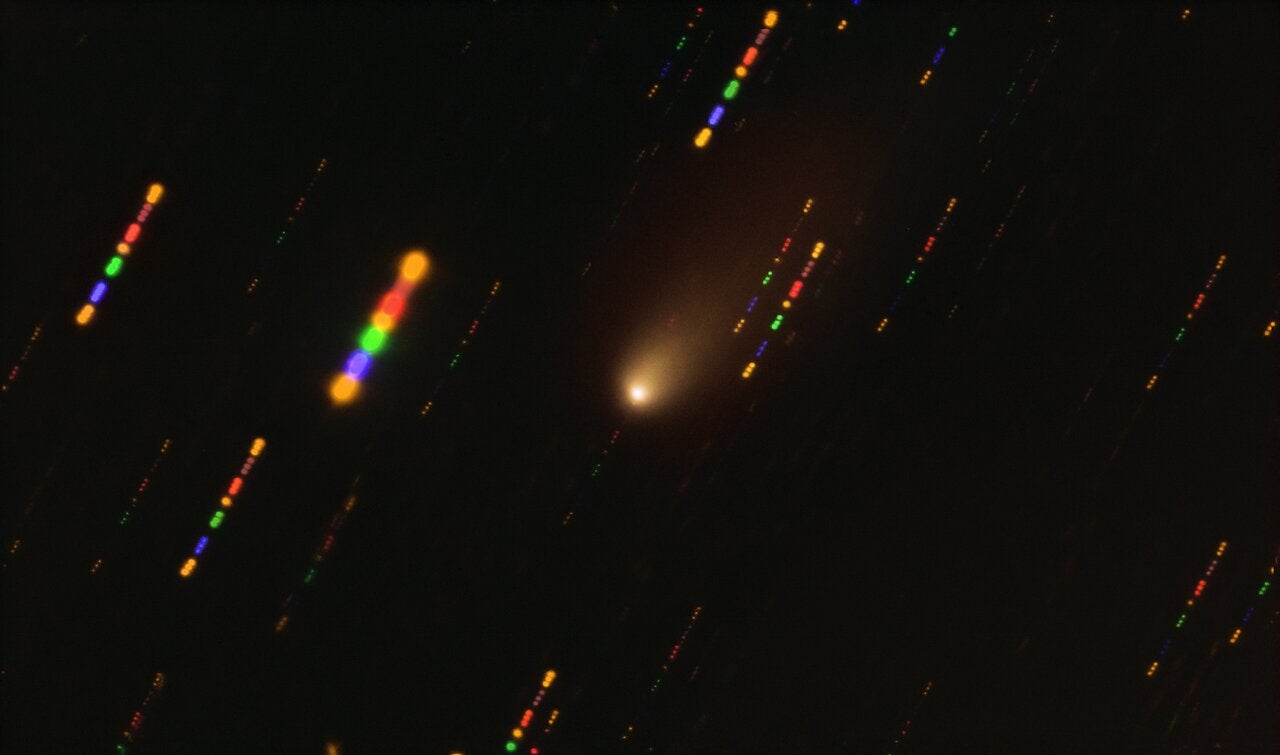Scientists reveal major new details about first ever comet from another solar system

The first comet known to have visited us from another solar system also appears to be more “pristine” than any other examined by scientists.
Those are the findings of a major new paper that examined the “rogue comet” 2I/Borisov, only the second interstellar object that hs been seen by scientists.
The object does not appear to have passed close to any other star – meaning that it represents an unspoilt piece of the gas and dust cloud that formed it.
“2I/Borisov could represent the first truly pristine comet ever observed,” says Stefano Bagnulo of the Armagh Observatory and Planetarium, who led the new study, published in Nature Communications.
Researchers have already been able to use information about the visitor to understand more about the distant system that it had come from, they reported in another study in Nature Astronomy. “Imagine how lucky we were that a comet from a system light-years away simply took a trip to our doorstep by chance,” said Bin Yang, an astronomer at ESO in Chile who worked on that study.
Read more:
- Scientists may have found a special black hole that could change our understanding of the universe
- Scientists make breakthrough in finding explanation for ‘spiders’ seen on Mars
- Next bitcoin crash will wipe 90% from price and cause ‘crypto winter’, expert warns
- Theory claims to finally reveal how the dinosaurs were killed
The object has a “coma”, or dusty envelope, that is made up of very small grains, as well as water and carbon monoxide that were altered as they flew by the sun. That suggests the comet was made up of pieces taken from different parts of its own system, in turn indicating that whatever system it came from was mixed up, perhaps by giant planets, in a similar way to what happened in our own.
The comet was first spotted by an amateur astronomy named Gennady Borisov – who gave it its name – in 2019. As soon as it was spotted, experts rushed to gather as much information about it as possible, and we’re able to confirm that it was the first comet known to have come to us from outside our own solar system.
But further research has shown that our own sun was probably the first star it came near to, leaving it “pristine”.
2I/Borisov is very different from objects in our own solar system, apart from the famous comet Hale-Bopp. That was not only so interesting because it could be seen with the naked eye on its flyby in the late 90s, but also because it too was especially pristine, and so represented an unusual opportunity for scientists.
Hale-Bopp was thought to have only passed by our Sun only once before its famous journey more than 20 years ago. As such, it was a useful look at the dust and gas cloud that it and the rest of our solar system were born from in their very beginnings, some 4.5 billion years ago.
Research into 2I/Borisov suggests it is similar but even more pristine. It carries with it signatures – unchanged by its journey past other stars – of the place it was born.
“The fact that the two comets are remarkably similar suggests that the environment in which 2I/Borisov originated is not so different in composition from the environment in the early Solar System,” said Alberto Cellino, a co-author of the study, from the Astrophysical Observatory of Torino.
Join our commenting forum
Join thought-provoking conversations, follow other Independent readers and see their replies
Comments
Bookmark popover
Removed from bookmarks